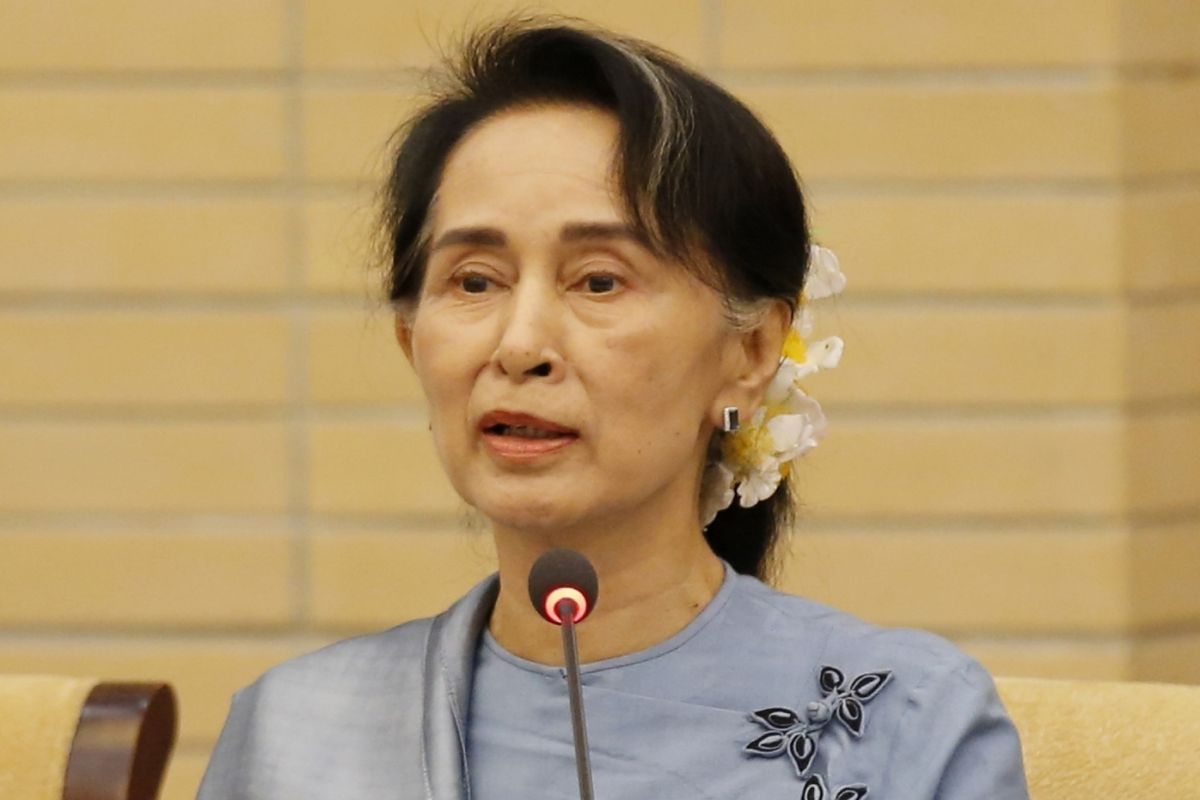Kenya secures funding to tackle climate change challenges
The United Nations (UN)-backed Green Climate Fund (GCF) has approved 50 million US dollars for key projects to bolster climate resilience and promote sustainable development in Kenya.
“Time is of the essence. The opportunity to reverse the military takeover is narrowing.”

Myanmar State Counselor Aung San Suu Kyi. (File Photo: IANS)
In a rare initiative, the United Nations ~ known for its prevarication ~ has advanced an equally rare call to halt arms sales to Myanmar.
The response comes close to five months after this year’s violent military coup in February 1.
Advertisement
The General Assembly on Friday adopted a resolution condemning the military junta, which overthrew the country’s elected government. And the electoral outcome in favour of Aung San Suu Kyi was no less spectacular than her victory in the early 1990s.
Advertisement
In what must rank as an unusually robust intervention, the UN has also called for the release of political detainees, pre-eminently Suu Kyi, and an end to violence against peaceful protesters.
According to a monitoring group, security forces have killed more than 860 people and detained nearly 5,000. While not legally binding, the resolution is hugely significant when viewed through the political prism and cannot but rock the Tatmadaw’s (military) boat in Naypidaw.
“The risk of a large-scale civil war is real,” the UN’s special envoy on Myanmar, Christine Schraner Burgener, told the General Assembly.
“Time is of the essence. The opportunity to reverse the military takeover is narrowing.”
The resolution was supported by 119 countries, with Belarus the only one to vote against it. Another 36 countries abstained, including Russia and China ~ the two biggest arms suppliers to Myanmar.
According to some of the countries that abstained, the relentless crisis is an internal issue for Myanmar. Theoretically, perhaps it is. Others claimed that the resolution did not address a brutal military crackdown on the Rohingya Muslim population four years ago, which forced almost a million people to flee the country. In 2017, Myanmar’s army responded to attacks on police by Rohingya militants with a deadly crackdown, driving more than half a million Rohingya Muslims across the border into Bangladesh in what the UN later called a “textbook example of ethnic cleansing”.
The two issues ~ the Rohingyas and Suu Kyi being demied the democratic opportunity to form a government ~ are radically different. That said, the UN appears to have eventually realised that governance in Myanmar has been in limbo for as long as it has. For several years, the country was in unsplendid isolation.
The resolution also calls for an end to violence against peaceful protesters.The EU’s UN ambassador, Olof Skoog, said the resolution “delegitimises the military junta, condemns its abuse and violence against its own people, and demonstrates its isolation in the eyes of the world”. But Myanmar’s UN ambassador, Kyaw Moe Tun, who represents the country’s elected civilian government, said he was disappointed by how long it took for the General Assembly to pass what he called a “watered down” resolution.
It must be accepted that the UN intervention has come terribly late in the day. Suu Kyi who turned 76 on Saturday has been under house arrest, and little has been seen or heard of her, with the exception of brief court appearances.
Advertisement